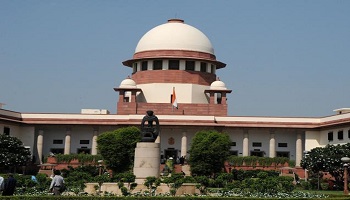By I C Naik
“The Supreme Court has ruled that a man is legally entitled to nominate his married daughter to own his cooperative society flat after his death, depriving his wife and only son”.
The Indian media as usual rushed with headlines and report, just to quote: SC If there’s a nominee, others’ rights subservient.
Wives and Sons need not get scared with such reports. This was a simple issue of taking a view of sentence viz Explanation to Rule 127 of West Bengal cooperative societies Rules 1987 ( Not necessarily all States have same Rule), namely Explanation: For the purpose of this rule a family shall have the same meaning as given in the Explanation to Sub-section (2) of Section 13 and shall include major sons and daughters.
The Deputy Registrar misinterpreted the phrase “and shall include major sons and daughters”. Look at the colossal waste of time and tension in the Sengupta family. A misplaced excitement created by media that can scare the members in families and mistrust within brothers and sisters. The hard facts remain that line of succession to intestate immoveable property is not in the scope of Cooperative Societies Law. Hindu Succession Act governs the same finally. In the quarrel on wrong track the family perhaps did not take up the issue before a right forum and lost precious time.
The latest example is of a nomination of a married daughter to take on membership upon death of her father, in housing society registered under West Bengal Cooperative Act and Rules. The membership so conferred on a married daughter was objected to by her lone brother. He was excluded by the father as a punishment for not looking after the father during his sunset years. So much so that the son did not participate in the father’s last rites also who died on 22nd July, 2003.
It took more than 12 years to reach finality (though interim) during which the daughter passed through a judicial ordeal. It commenced with the Deputy Registrar (the DR) making an order on 11.11.2003 that:
“…. as late Sengupta had family of his own, the nomination made by late Sengupta in favour of Smt. Wahi can’t be accepted, as it was not done in terms of Section 79 of W. B.C. S. Act read with Rule 127 of W. B. C. S. Rules, 1987. Hence letter of administration/succession certificate is required in favour of Smt. Wahi in terms of Rule 128 of W.B.C.S. Rules, 1987.”
In essence the DR believed that a married daughter was not a member of the family of the deceased member as the Rule 127 of West Bengal Cooperative societies Rule 1987 so required.
In a writ by the Nominee daughter P Chattopadhyay J, Single Judge of High Court of judicature at Calcutta on 24 March, 2004 quashed the order of the Dy Registrar and directed to admit the nominee daughter as member of the society. (2004) 2 CALLT 444 HC, 2004 (3) CHN 483
The simple question to be addressed by the learned Judge was “whether the family of a deceased member can also include a married daughter under the provisions of West Bengal Cooperative Societies Act, 1983 (the Act) and the West Bengal Co-operative Societies Rules, 1987.” Recognising that Explanation to Rule 127 has expanded a scope of the family as defined under Section 13(2) of the Act family members by adding the words shall include major sons and daughters.” The learned single judge has quoted Supreme Court in the case of the Regional Director, Employees’ State Insurance Corporation v. High Land Coffee Works of P.F.X. Saldanha & Sons and Anr that “The word ‘include’ in the statutory definition is generally used to enlarge the meaning of the preceding words and it is by way of extension, and not with restriction. The word ‘include’ is very generally used in interpretation clauses in order to enlarge the meaning of words or phrases occurring in the body of the statute; and when it is so used, these words and phrases must be construed as comprehending, not only such things as they signify according to their natural import but also those things which the interpretation clause declares that they shall include……….”
The mother and son assailed single judge order by a special leave of Division Bench by a writ on which an order was made upholding the single judge bench order but also added that this did not mean the title of heirs was also decided in favour of nominee. This was made clear by referring to observations of the S C in Usha Ranjan Bhattacharjee And … vs Abinash Chandra Chakraborty And … on 11 March, 1997: JT 1997 (10) SC 356, (1997) 10 SCC 344.
